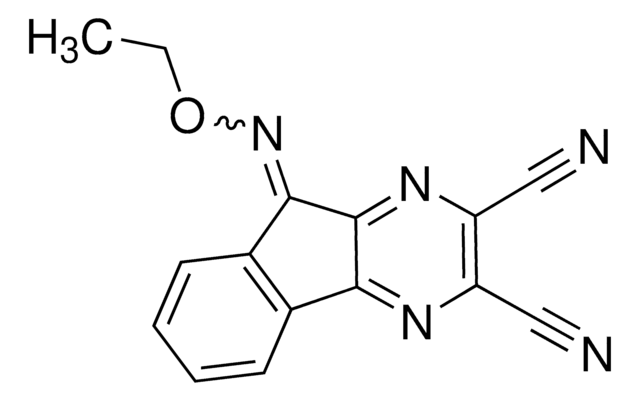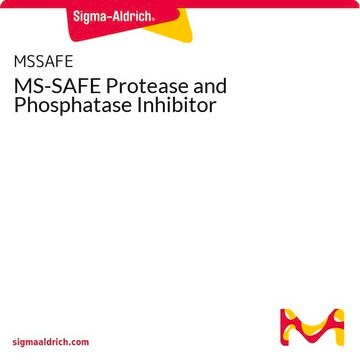662141
PR-619
≥99% (HPLC), solid, DUB inhibitor, Calbiochem®
Synonyme(s) :
DUB Inhibitor V, PR-619, 2,6-Diaminopyridine-3,5-bis(thiocyanate), 3,5-Dithiocyanatopyridine-2,6-diamine, PR619, UCH-L1 Inhibitor IV, UCH-L3 Inhibitor II, UCH-L5/UCH37 Inhibitor III, USP5 Inhibitor II, USP7 Inhibitor I, USP9X Inhibitor II, USP14 Inhibitor IV, USP14 Inhibitor IV, USP47 Inhibitor I, UCH-L3 Inhibitor II, UCH-L5/UCH37 Inhibitor III, USP5 Inhibitor II, USP7 Inhibitor I, USP9X Inhibitor II, USP14 Inhibitor IV, USP14 Inhibitor IV, USP47 Inhibitor I, 2,6-Diaminopyridine-3,5-bis(thiocyanate), 3,5-Dithiocyanatopyridine-2,6-diamine, PR619, UC
About This Item
Produits recommandés
product name
DUB Inhibitor V, PR-619, The DUB Inhibitor V, PR-619 controls the biological activity of DUB. This small molecule/inhibitor is primarily used for Protease Inhibitors applications.
Niveau de qualité
Pureté
≥99% (HPLC)
Forme
solid
Fabricant/nom de marque
Calbiochem®
Conditions de stockage
OK to freeze
protect from light
Couleur
light beige to yellow
Solubilité
DMSO: 50 mg/mL
Conditions d'expédition
ambient
Température de stockage
2-8°C
Description générale
Conditionnement
Avertissement
Informations légales
Code de la classe de stockage
11 - Combustible Solids
Classe de danger pour l'eau (WGK)
WGK 3
Certificats d'analyse (COA)
Recherchez un Certificats d'analyse (COA) en saisissant le numéro de lot du produit. Les numéros de lot figurent sur l'étiquette du produit après les mots "Lot" ou "Batch".
Déjà en possession de ce produit ?
Retrouvez la documentation relative aux produits que vous avez récemment achetés dans la Bibliothèque de documents.
Contenu apparenté
Select different protease inhibitor types based on your needs to prevent protein degradation during isolation and characterization and safeguard proteins in sample prep.
Select different protease inhibitor types based on your needs to prevent protein degradation during isolation and characterization and safeguard proteins in sample prep.
Select different protease inhibitor types based on your needs to prevent protein degradation during isolation and characterization and safeguard proteins in sample prep.
Select different protease inhibitor types based on your needs to prevent protein degradation during isolation and characterization and safeguard proteins in sample prep.
Notre équipe de scientifiques dispose d'une expérience dans tous les secteurs de la recherche, notamment en sciences de la vie, science des matériaux, synthèse chimique, chromatographie, analyse et dans de nombreux autres domaines..
Contacter notre Service technique






